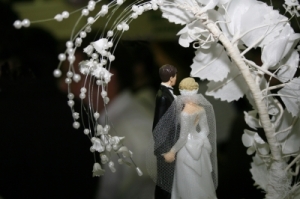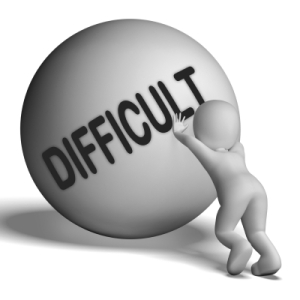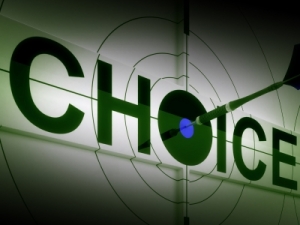The title of my post today should make it pretty clear what I’ll be focusing on – that sticky wicket called commitment. As I mentioned in one of my first blog posts, a common question that my monogamous friends ask me is: are you poly because you’re afraid of commitment? I answered that question in that post, but I’m going to delve much deeper today into what commitment really is.
First, let me say that I’m going to be writing about commitment in a much larger sense. I’m going to examine commitment as it transcends polyamory and monogamy. So often, we talk about being in a “committed relationship.” In much of monogamous society, that is code for “exclusive.” But, as I’ve discussed previously, commitment isn’t about exclusivity. I can be committed to several friends all at once – being committed to one friend doesn’t mean I can’t also be committed to another. Commitment, like love, isn’t a finite resource that gets used up once we’ve made a commitment to a person.
To me, commitment means exhibiting a deep care and devotion to another person. This care and devotion can be exhibited by spending time with that person, sharing woes and heartaches with that person, celebrating successes and triumphs with that person, and/or simple gestures of affection. A hug is a great way to show your commitment to another person through physical contact. And depending on the intimacy level between you and the person you’re committed to, cuddling, holding hands, kissing and sexual contact might also be ways to show commitment.
Oh, and one more thing: I love everybody I’m committed to.
That is, I am committed to all of my friends. And I love all of my friends. The love I feel for each and every one of these friends is unique, like a snowflake. Yes, I see love and commitment as intertwined very closely.
And I think that many of my friends, both poly and monogamous alike would agree with me. For our close friends, we would do almost anything. They are like family. The love we feel for them brings us closer, strengthening the commitment we have. So hey, monogamous person reading my blog right now – you love many people. And not just your family and romantic partner. You love your friends. You are showing the power of infinite love every time you express that commitment to your friends. And the love you feel for one friend doesn’t necessarily diminish the love you feel for your other friends, or for your romantic partner, or for your family. Because each of those “loves” is different – the snowflake effect, as I mentioned earlier.
We poly-mers just take this a step further, and open up the possibilities that the love and commitment we feel doesn’t have to be limited to just platonic friends. That we can form intimate/romantic/sexual bonds with multiple people, love those people, and be committed to them. And these relationships might all be very different. Some poly people seek out very serious, long term relationships. Some poly people seek out relationships that might fulfill needs (sexual, emotional, intellectual) that another partner doesn’t meet. Some poly people desire companionship – a special friend to have a cuddly-Netlfix night with. But all of these poly people have in common a close relationship to those that they’re involved with – a commitment that comes with love.
Now, I’m not necessarily talking about that “falling in love” kind of love, though that may be the case for some people. Recently, on a Facebook discussion group, we were talking about how some people are “in love” with some of their partners, but just have sexual relationships with others. Upon further exploration, most of the people that self-identify as having “casual” sexual relationships are actually friends with those people. And since we are committed to our friends, and often love our friends, in a way, these aren’t casual relationships.
To be clear, to me a casual relationship is one in which neither side has any feelings whatsoever for the other – they’re just there only for sexual gratification, not for a kind of connection beyond that. I would call those Fuck Buddies (FB). I don’t think this is a bad thing, but I don’t put FB under the realm of poly, because there is not a commitment of any kind in those types of relationships. I think that many of my poly friends might be engaging in a FWB (Friends with Benefits) setup – but at the heart of that term is still the word friend, which I think establishes a level of care that goes beyond just sex.
Much of what I’ve discussed in this post is truly a case of semantics. Some of my poly friends would (and actually have) disagreed with my definitions. I entirely respect the viewpoints of my fellow poly-pals,but ultimately I think we need to come to agreement on what we’re talking about. I think that using common terminology is important, so that when we communicate with the monogamous world, we are all on the same page. One of my goals with this blog is to raise awareness of the polyamory orientation among the monogamous. This is a crucial step in gaining acceptance, which then builds a bridge to equal rights for those in poly relationships. Word choice may not seem like much, but in the end it’s so very important in the battle of public perception.
So, go forth and love the people in your life. Honor your commitment to them. Give them a hug today – and tell ’em Patrick sent ya!








